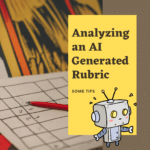Fact, I have anxiety about math facts.
- I have a degree in math.
- I graduated college with honors.
- I got the highest score at my university on the Putnam exam, which is supposedly a big deal to get a non-zero score.
- I taught high school math for 14 years.
- I am the Queen of Spreadsheets.
- I code for fun and share my coding projects.
I repeated the 4th grade due to math facts.
After 2 years of 4th grade, I never passed the timed math tests.
If you ask me to do basic arithmetic in my head, even 7×8, I freeze. My heart races. I try to dodge the question. I’m perfectly capable.
I’m more inclined to use strategies when doing math problems than memorization. When I’m alone and tallying student scores on a paper, I do great. If I need to design a spreadsheet and apply math, I excel at that.
I am not alone.
Reading Mathematical Mindsets by Jo Boaler, for the first time in my life I realize
I am not dumb.
I turn 40 next month and for pretty much my whole life I have felt dumb. I struggled with math. Let me rephrase; I struggled with memorizing procedures without understanding the context and concepts.
An important takeaway from Jo Boaler’s book:
Fast is NOT the same as being smart.
[tweet]I was damaged by timed math tests.[/tweet] Not just me. This practice causes students to have anxiety about math; to think they are not smart. [tweet]Memorizing is not critical thinking and it is not an indication of intelligence.[/tweet]
Fluency Without Fear
This article on the importance of number fluency over memorization was my first introduction to the work of Stanford math professor and researcher, Jo Boaler. Reading Mathematical Mindsets brought me to tears, giant crocodile tears, many times. Easily the most powerful read ever for me. I am not dumb.







